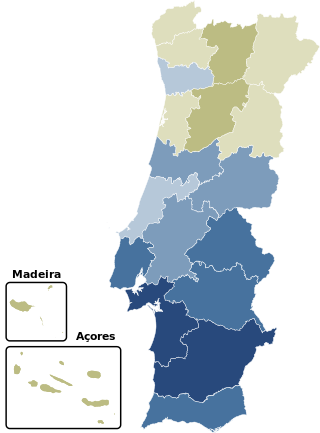
A popular initiative is a form of direct democracy by which a petition meeting certain hurdles can force a legal procedure on a proposition. The hurdles the petition has to meet vary between countries, typically signatures by a certain number of registered voters.
Abortion in Ireland is regulated by the Health Act 2018. Abortion is permitted in Ireland during the first twelve weeks of pregnancy, and later in cases where the pregnant woman's life or health is at risk, or in the cases of a fatal foetal abnormality. Abortion services commenced on 1 January 2019, following its legalisation by the aforementioned Act, which became law on 20 December 2018. Previously, the 8th Constitutional Amendment had given the life of the unborn foetus the same value as that of its mother, but the 36th constitutional amendment, approved by referendum in May 2018, replaced this with a clause permitting the Oireachtas (parliament) to legislate for the termination of pregnancies.
The Eighth Amendment of the Constitution Act 1983 was an amendment to the Constitution of Ireland which inserted a subsection recognising "the equal right to life of the pregnant woman and the unborn". Abortion had been subject to criminal penalty in Ireland since at least 1861; the amendment ensured that legislation or judicial interpretation would be restricted to allowing abortion in circumstances where the life of a pregnant woman was at risk. It was approved by referendum on 7 September 1983 and signed into law on 7 October 1983. In 2018, it was repealed by referendum.

A referendum, in the Italian legal system is a request directed to the whole electorate to express their view on a determined question. It is the main instrument of direct democracy in Italy.

On 28 June 1998 a referendum on a new abortion law was conducted in Portugal; it was the second national referendum in the Portuguese history and the first after the 1974 Carnation Revolution. The law was proposed by the Portuguese Communist Party and it decriminalized abortion during the first ten weeks of pregnancy and was considered by the left as the only way to put an end to the estimated 20 to 50 thousand illegal abortions in the country. The law was approved in the Assembly of the Republic through a majority of the center-left and left-wing parties, but an agreement between the Socialist Party and the Social Democratic Party parties leaders led to the referendum.

The Broad Front is a left-wing political coalition from Uruguay. It was the ruling party of Uruguay from 2005 to 2020 and has produced two presidents: José Mujica (2010–2015) and Tabaré Vázquez. Since 1999, it has been the largest party in Uruguay's General Assembly.

An abortion referendum took place in Portugal on 11 February 2007, to decide whether to legalise abortion up to ten weeks. The referendum was the fulfillment of an election pledge by the governing Socialist Party of Prime Minister José Sócrates.
Abortion in Switzerland is legal during the first twelve weeks of pregnancy, upon condition of counseling, for women who state that they are in distress. It is also legal with medical indications – threat of severe physical or psychological damage to the woman – at any later time. Switzerland is among the developed nations with the lowest rates of abortions and unwanted pregnancies.
Since 2021, abortion has no longer been a federal crime in Mexico. However, the criminal law in Mexico varies by state. On 7 September 2021, the Mexican Supreme Court unanimously ruled that penalising abortion is unconstitutional, setting a precedent across the whole country. Before 2019, abortion had been severely restricted outside of Mexico City, where it was legalized on-request in 2007. As of August 2023, abortion is available on request to any woman during the first twelve weeks of a pregnancy in Mexico City and the states of Oaxaca, Hidalgo, Veracruz, Coahuila, Colima, Baja California, Sinaloa, Guerrero, Baja California Sur, Quintana Roo, Jalisco, and Aguascalientes. However, even in states where abortion is legal, there continue to be women in pre-trial detention for murder due to spontaneous miscarriage.

Drug liberalization is a drug policy process of decriminalizing or legalizing the use or sale of prohibited drugs. Variations of drug liberalization include drug legalization, drug relegalization, and drug decriminalization. Proponents of drug liberalization may favor a regulatory regime for the production, marketing, and distribution of some or all currently illegal drugs in a manner analogous to that for alcohol, caffeine and tobacco.
Abortion in Uruguay is legal on request before twelve weeks of gestation, after a five-day reflection period. Abortion has been legalized in Uruguay since 2012. Uruguay is one of only four countries in South America where abortion is legal on request; the other three are Argentina, Guyana and Colombia.

Abortion in Colombia is freely available on request up to the 24th week of pregnancy, due to a ruling by the Constitutional Court on February 21, 2022. Later in pregnancy, it is only allowed in cases of risk of death to the pregnant woman, fetal malformation, or rape, according to a Constitutional Court ruling in 2006.
The Dominican Republic is one of 24 countries in the world and one of six in Latin America that has a complete ban on abortion. This complete ban includes situations in which a pregnant person’s life is at risk.
Abortion in Cuba is legal and available upon request, which is rare in Latin America because of widespread Catholic influence.

The legal history of cannabis in the United States began with state-level prohibition in the early 20th century, with the first major federal limitations occurring in 1937. Starting with Oregon in 1973, individual states began to liberalize cannabis laws through decriminalization. In 1996, California became the first state to legalize medical cannabis, sparking a trend that spread to a majority of states by 2016. In 2012, Washington and Colorado became the first states to legalize cannabis for recreational use.

Cannabis is legal in Uruguay, and is one of the most widely used drugs in the nation.
Twelve national referendums were held in Switzerland during 2014.
Abortion in Nevada is legal up to the 24th week of pregnancy, under the Nevada Revised Statutes chapter 442, section 250; and after 24 weeks if the pregnancy could be fatal for the pregnant woman. 62% of adults said in a poll by the Pew Research Center that abortion should be legal while 34% said it should by illegal in all or most cases. Legislation by 2007 required informed consent. Attempts were successfully made to pass abortion legislation in May 2019, being pushed through a largely Democratic controlled state legislature. The number of abortion clinics in Nevada has declined over the years, with 25 in 1982, seventeen in 1992 and thirteen in 2014. There were 8,132 legal abortions in 2014, and 7,116 in 2015. Due to the high level of support for abortion rights, continued access to abortion is supported by all parties, including the Republicans.

The Abortion Legislation Act 2020 is an Act of Parliament in New Zealand allowing unrestricted access to abortion within the first 20 weeks of pregnancy, and repealing sections of the Crimes Act 1961 related to unlawful abortion. After the 20-week period, women seeking an abortion must consult a qualified health practitioner who will assess their physical health, mental health, and well-being. The Act also provides provisions for conscientious objection rights for medical practitioners and exempts abortion services from certain Crimes Act provisions, while extending the definition of health services to include abortion services under the Health and Disability Commissioner Act 1994.
Cotidiano Mujer is a Uruguayan feminist collective based in Montevideo. The group's mission is to contribute to promotion of social, cultural, and political change that works towards gender equity and democracy among women in Uruguay and Latin America. It has published a newspaper, as well as books and conference proceedings. The group has also presented a radio show and podcast.










